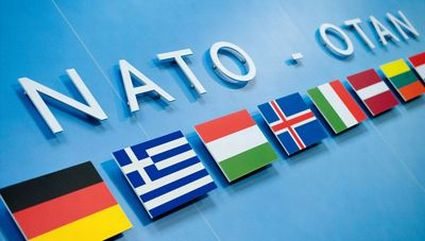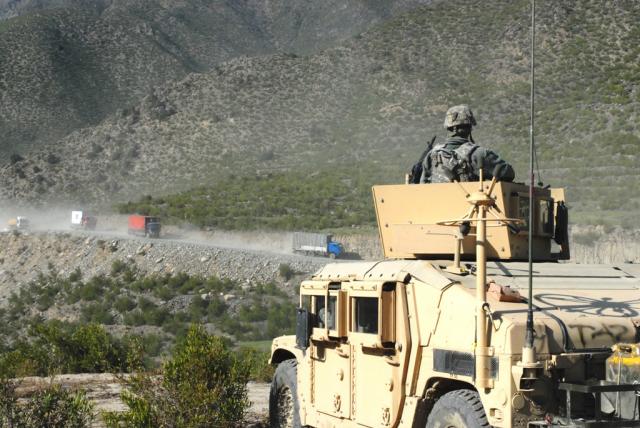While Western powers quickly backed Ankara after deadly Syrian fire on a Turkish border village, it is unlikely its NATO partners, above all the United States, would opt for a military response, analysts said.
The incidents, with Turkish forces retaliating in kind, are serious but not enough on their own to justify intervention given the risk of being sucked into an increasingly bloody Syrian conflict, they said.
For Washington, there is the immediate concern of the November presidential election and the disincentive of Iraq and Afghanistan — wars taken on enthusiastically in the belief of quick victories which turned into quagmires.
Exchanges like those on the Syria-Turkey border “only create a fire when the time is right”, said Nadim Shehadi, Associate Fellow at Chatham House in London.
“Previous incidents did not lead anywhere,” Shehadi said, recalling June when Syria shot down a Turkish fighter plane with the loss of its two-man crew.
“It is clear that NATO is unwilling or not ready for an engagement. If they were, then a smaller spark than this” would be enough, he added.
Other analysts said the mutual defence commitment of Article V of the NATO treaty clearly applies to Turkey, but could be fulfilled in a limited form.
“NATO might consider it appropriate to deploy some forces to Turkey as a gesture of support under Article V (for instance additional air forces and perhaps maritime presence),” said Michael Codner, Senior Research Fellow at the Royal United Services Institute in London.
“This would have a deterrent effect against the Syrian government … However the longer such forces were in place and were not used, the weaker the compellent effect.”
There is also a major political problem.
Many of NATO’s 28 member states “would want a specific UN mandate for this level of action and it is very unlikely that there would be consensus among (them) for anything so robust,” Codner said.
“Because of the complexity of the situation compared with Libya it is most unlikely that there will be US, UK or French leadership in initiating a NATO intervention,” he added.
In the Libyan intervention to back an uprising against Moamer Kadhafi last year there was a “coalition of the willing” of the United States, France and Britain, which was then handed over to NATO.
“None of these nations would want responsibility for a long term occupation of Syria to restore order and stabilise as a result of a collapse of the government following NATO intervention,” Codner said.
Francois Heisbourg, head of the International Institute for Strategic Studies in London, highlighted the seriousness of the situation — Wednesday’s five Turkish civilian deaths were the first as a result of the Syrian conflict.
On that basis, NATO expressed its firm backing for Ankara and condemned Damascus. But would it go further?
Turkey did not seem to want a wider war, although as a proud country that might change if the clashes worsened, when it could invoke Article V. But in that case, it would be handing over control to NATO, Heisbourg said.
Accordingly, Turkey might go no further than Article IV, which provides for NATO consultations, and UN Article 51, which provides for self-defence.
Whatever follows, the “West is in a bind (without a UN Security Council resolution). That is why they are keeping quiet. The more one talks, the more one appears powerless … There is no enthusiasm for intervention in Syria”.
NATO Secretary General Anders Fogh Rasmussen has consistently made the point that the alliance has no plans to fight in Syria, where the solution is political, not military.
Many analysts share that view overall but Shehadi of Chatham House argued that non-intervention could ultimately prove more costly.
“There is a balance of consequences,” he said, pointing to the seriousness of the growing Syrian refugee problem and its impact on neighbouring countries, along with the ultimate reconstruction effort needed.
“It is more costly the longer they keep the current situation going … they will have to pay the bill later.”










